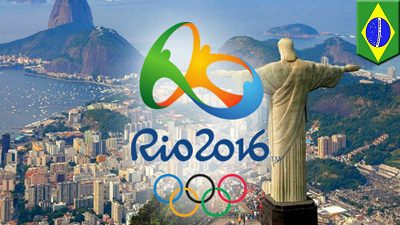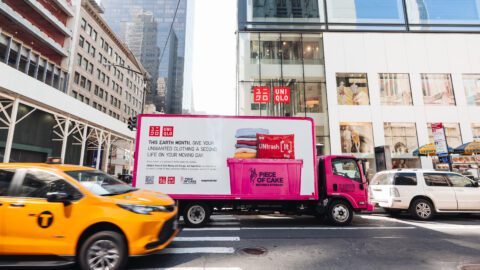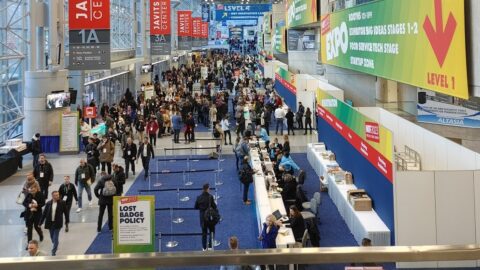At the same time as the Olympic athletes will be running, swimming, hurling and vaulting in their quest for golden glory, there will be another competition going on in Rio. That will be the fight for eyeballs, impressions and marketing leadership. This year, a change in the sponsorship rules has put several well-known brands, including retailers Under Armour and lululemon, right in the middle of this heated contest.
Until this year, “rule 40” of the Olympic Charter severely restricted what advertising could be seen or said before and during the Games, which will be held August 5-21. Athletes and their agents lobbied hard for the rule change. Now, companies that have sponsored athletes through years of training and qualifying competitions can share the spotlight during the event itself. Previously, marketing opportunities had been largely limited to official sponsors such as Nike and McDonald’s, which pay millions for these rights.
There are still restrictions, of course. The International Olympic Committee (IOC) allows these non-official sponsors to create ad campaigns tailored to the athletes themselves, as long as the creative elements do not include any Olympic symbols or overtly mention certain terms. These can include “Rio,” “gold” or even “summer” in some contexts, according to The New York Times.
Companies needed to apply for a waiver by January 2016, and their campaigns, which were subject to approval, had to begin in March. In addition to the retailers, brands including Red Bull, Gatorade and General Mills have successfully applied for waivers and generated campaigns.
The rush to Rio is happening in the physical world as well. The Brazil Business Bureau reports that brands including Dunkin’ Donuts, Johnny Rockets, Sears, Apple, Gap, Topshop, Forever 21, Desigual, Uniqlo, Clarks, Sephora and The Body Shop have all either opened new stores in Brazil since 2013, or plan to open new stores by the end of 2020, according to a report from Fung Global Retail & Technology.
Olympics Campaigns That Don’t Break The Bank
For retailers still looking for ways to leverage the Olympics, it’s not too late. Here are four strategies from PracticalECommerce geared to different budget levels, ranging from less than $500 to $20,000:
• Under $500 budget: Use content marketing, publishing articles, social media posts or videos related to the Olympics, and/or individual athlete endorsements (these can include providing products in exchange for a Facebook or Instagram mention);
• $500 to $1,500 budget: Use YouTube for advertising, e.g. promote an Olympic parody video as a commercial;
• $1,500 to $5,000 budget: Make a more significant endorsement deal with an athlete or team, involving not just a social media mentions but the athletes’ appearance in online advertising or a content marketing profile; and
• $5,000 to $20,000 budget: Hold a social media contest and send a pair of shoppers to the Games for a fun weekend. Make subscribing to your company’s email list a requirement for entry in the contest, and collect “likes” and “follows” on social media.
Under Armour Dives In With Phelps; lululemon Seeks Relationship-Building With Athletes
Much-medaled swimmer Michael Phelps is being sponsored by Under Armour, which also has backed approximately 250 other athletes. The retailer already has begun its campaign featuring the swimmer, and the athletic gear manufacturer also is planning events in Rio during the Games. These include renting a series of outdoor gyms on a 50-mile stretch of beach in Rio to serve as marketing outposts and host daily workouts for fans. Under Armour will also entertain VIP guests in a penthouse where they can mingle with the athletes, according to Reuters.
[Click here to see the Under Armour commercial featuring Phelps.]
Lululemon, which has been involved with Olympics sponsorships to some extent since 2010, is expanding its activities for the Rio Games. The Canada-based brand is sponsoring the Canadian beach volleyball squad as well as American beach volleyball players Jake Gibb and Casey Patterson, along with cyclists and other competitors.
The sponsorship is designed to showcase lululemon’s products as well as the people, according to an article in Fortune, which noted that the printing technique showing off the Canadian team’s national colors are meant to represent “power and movement” while at the same time highlighting the company’s printing techniques.”
Being an Olympics sponsor, even a non-official one, gives lululemon much-desired credibility with both professional athletes and amateurs. Eric Petersen, who oversees lululemon’s athlete program, noted in the Fortune article that the next three Olympics are to be held in Asia, which gives the brand “an opportunity to introduce itself to more shoppers abroad as it looks toward international markets for growth.”
Despite the challenges these Games are facing — economic unrest in the host country, the Zika virus, doping scandals — the Olympics still represent a significant retail marketing opportunity. Retailers and other brands should closely monitor whether the investments by Under Armour and lululemon are good enough to earn medals for their marketing prowess.













